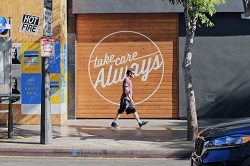Self-Care Tips That Were Vital To My Recovery | Guest Post by Jack Agaston

There are many factors that go into successful recovery. People that have overcome their addictions will tell you a myriad of different ways to get and remain sober. There is not a one size fits all solution to recovery and everyone needs to find a program that works for them. After many years of attempting to get sober I have found different coping mechanisms and strategies that help me continue to stay sober. Through practicing self-care, recovery from my addiction to heroin has become much easier and simpler. Addiction can make things seem complicated and the simplest of tasks can become a huge ordeal. By staying grounded and consistent in recovery, I no longer have to live in fear of my next drink or drug.
What is Self-Care?
Self-care is a very broad term. I never want to put guidelines around what it is and isn’t, because it can look very different from me to you. I used to have a very narrow view of what self-care meant. Things like exercise, meditation, and going to 12 step meetings were how I pictured self-care, and while those are all great examples of self-care they don’t even begin to scratch the surface.
Because people find enjoyment and relief in different things I can’t tell someone exactly what they should do as far as self-care, but I recommend they try as many practices as they can. You won’t really know what works for you until you spend some time discovering what you enjoy doing. Getting sober is a form of self-discovery because typically the time spent in active addiction is always spent using or thinking about your next use. So many addicts, such as myself, have no clue what they like to do for fun.
Finding What Works For You
Meditation is brought up a lot when talking about self-care. There are many different meditation practices but generally meditation is used as a way to become more mindful and present. Meditation can be very difficult for someone who is fresh in sobriety and is used to constant stimuli. When you’re using drugs or alcohol in an addictive way, your brain becomes used to that sensation and feeling of always being under the influence.
I know for myself when I was fresh in sobriety I wanted to be anywhere but the present. I was either dwelling on my past and what I had done or wishing I already had multiple years sober and a successful career. So when it was recommended to me to work on being more present I didn’t really have any interest. The issue is as an addict I don’t have the luxury to live anywhere but the present for long.
Too much time spent thinking about the past or future and it can be a surefire way to lead myself to relapse. When you’re fresh in sobriety you are told to take things one day at a time. It’s one of the most common clichés in recovery, but it is a cliché for a reason. I become quickly overwhelmed when thinking about how difficult it will be to stay sober for a week, let alone a year or the rest of my life, but it is very possible to stay sober for the rest of the day. So I carry that practice with me every day. By putting in some work in understanding how meditation and mindfulness help me stay sober, I am now able to take time out of my day as needed to spend a few minutes still and present, even on my most stressful days.
Connecting With Others
Another good practice is building a network of people who understand what you are going through. A simple phone call can change your entire perspective on your situation. Letting someone know where your head is at and not keeping everything inside can keep you from making a hasty decision. Odds are you are helping the person you are calling as well, since they have likely experienced the struggles you are going through. They will be happy to help.
I choose to move into a recovery focused halfway house. Also commonly referred to as a sober living home, this is an excellent choice for someone fresh in recovery. It forced me to immerse myself in a community of other sober, like-minded individuals while providing the safe and structured environment that I needed in early recovery. These are especially helpful to someone who might have moved to a new town.
However, don’t be afraid to set boundaries with your network and take time for yourself. It’s not uncommon for people that are trying to get plugged into a recovery community to overexert themselves. It is important to delegate time to you where you can get more comfortable with yourself. It is during these times that you practice self-care that is done alone. Such as listening to your favorite band, exercising, going on a nature walk, etc.
Self-Care and Lasting Recovery
One of the most important things about self-care is consistency. Building healthy habits is one of a person’s biggest defenses against relapse. Respect yourself enough to grant the time each day to spend doing what you need to do to remain present and healthy. Take the time to discover what keeps you groundedd. Doing this will be one of the best things you can do for yourself in sobriety.
About the author: Jack Agatston lives in Atlanta, GA. He has a passion for addiction recovery and is dedicated to sharing his message of hope with others through his writing and his daily work in the treatment industry. In his free time he enjoys anime, playing video games and martial arts.
